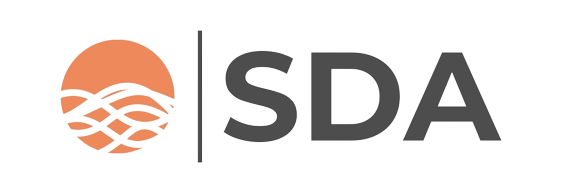What is SEO?

SEO, or search engine optimization, is the process of optimizing websites so that they rank well on search engines through organic (non paid) searches. This is one of the most crucial marketing strategies for any business.
Because Google aims to provide a positive user experience for its searchers, it wants to present the best possible information available. Therefore the focus of SEO efforts should be the process of making sure search engines recognize your content as the leading information on the web for a particular search query.
How does SEO work?
Search engines use robots that crawl webpages across the internet in order to determine what content they contain and, in turn, what the pages are about. These bots scan the code, picking up the written text, images, videos and more that appear on webpages to gather all information possible. Once they’ve gathered enough intel about the type of information available on each page and determined that this content will be useful to their searchers, they add these pages to their index. The index is essentially all possible web results that a search engine stores to provide to a potential searcher.
Why is SEO important?
In today’s competitive market, SEO marketing is more important than ever. Search engines serve millions of users per day looking for answers to their questions or for solutions to their problems. If you have a website, blog, or online store, SEO can help you get free targeted traffic from search engines.
SEO is important because:
· The majority of search engine users (more than 70% – see graph below) are more likely to click on one of the top 5 suggestions in the search engine results pages (SERPS). To take advantage of this and gain visitors to your website or customers to your online store, your website needs to appear in one of the top positions. · SEO is not only about search engines but good SEO practices improve the user experience and usability of a website. · Users trust search engines and having a presence in the top positions for the keywords the user is searching, increases the website’s trust. · SEO is good for the social promotion of your website. People who find your website by searching Google or Bing are more likely to promote it on Facebook, Twitter, or other social media channels. · SEO is important for the smooth running of a big website. Websites with more than one author can benefit from SEO in a direct and indirect ways. Their direct benefit is an increase in organic traffic and their indirect benefit is having a common framework (checklists) to use before publishing content on the site. · SEO can put you ahead of the competition. If two websites are selling the same thing, the search engine optimized website is more likely to have more customers and make more sales.
Technical SEO
The first stage in the SEO process is called technical SEO. As the name implies, technical SEO has nothing to do with the actual content of a website or with website promotion methods. It has to do with settings you need to configure to make the job of search engine crawlers easier. Usually, once you get your technical SEO correct, you may not have to deal with it again. On the other hand, if you have problems with crawling and indexing, it can negatively impact your rankings.
On-page vs. off-page SEO
Since there’s no way to know exactly what influences search engine rankings the most, experts recommend that your SEO strategy contain a variety of tactics. Those tactics can largely be broken down into two categories: on-page and off-page SEO.
On-page SEO refers to the strategies that you implement on your webpages themselves, including everything from the design and written content, to your metadata, alt text, sitemap, canonical tags and more. Off-page SEO refers to the steps you take outside of your pages. This includes elements like external links, social posts and other website promotion methods.

What is the difference between SEO and Digital marketing?
Some people often ask me “Is SEO the same as Digital Marketing?” The simplest answer I can give is that SEO is one of the tools available in your Digital Marketing arsenal. SEO can be part of your overall Digital Marketing campaign which normally includes other things like social media promotion, PPC, content strategy
The benefits of SEO Search engine optimization is a key part of online marketing because search is one of the primary ways that users navigate the web. Search results are presented in an ordered list, and the higher up on that list a site can get, the more traffic the site will tend to receive. For example, for a typical search query, the number one result will receive 40-60% of the total traffic for that query, with the number two and three results receiving significantly less traffic. Only 2-3% of searchers click beyond the first page of search results. Thus, even a small improvement in search engine rankings can result in a website receiving more traffic and potentially business. Because of this, many businesses and website owners will try to manipulate the search results so that their site shows up higher on the search results page (SERP) than their competitors. This is where SEO comes in. , etc.
Top SEO tools
As a fairly technical discipline, there are many tools and software that SEO relies on to help with optimizing websites. Below are some commonly used free and paid tools:• Google Search Console – Google Search Console (formerly known as “Google Webmaster Tools”) is a free tool provided by Google, and is a standard tool in the SEO’s toolkit. GSC provides rankings and traffic reports for top keywords and pages, and can help identify and fix on-site technical issues. • Google Ads Keyword Planner – Keyword Planner is another free tool provided by Google, as part of their Google Ads product. Even though it is designed for paid search, it can be a great tool to use for SEO since it provides keyword suggestions and keyword search volume, which can be helpful when doing keyword research. • Backlink analysis tools – There are a number of link analysis tools out there, the two primary ones being AHREFs and Majestic. Backlink analysis tools allow users to analyze which websites are linking to their own website, or the websites of competitors, and can be used to find new links during link building. • SEO platforms – There are many different SEO platforms that bring together many of the tools that SEO needs to optimize sites. Some of the most popular include Siteimprove, Moz, BrightEdge, Searchmetrics and Linkdex. These platforms track keyword rankings, help with keyword research, identify on-page and off-page SEO opportunities, and many other tasks related to SEO. • Social media – Most social media sites don’t have a direct impact on SEO, but they can be a good tool for networking with other webmasters and building relationships that can lead to link building and guest posting opportunities.
Optimizing search traffic: from clicks to conversions Search engine optimization done properly can have the potential to dramatically increase the amount of traffic that a website receives, but all of that search traffic won’t help grow a business unless it converts into paying customers. This is where conversion rate optimization (CRO) comes in. Conversion rate optimization involves using methods such as A/B testing to make changes to websites and measure the impact they have on a site’s conversion rate. Successful search marketers know that just getting traffic to a site is not enough, what the traffic does once it arrives on the site is just as important.
Related Posts
Recent Comments
Categories
- Blog(3)
- Call Agency(1)
- SEO(1)

Digital Marketing World
Nov 15, 2023

What is SEO?
Nov 15, 2023

Digital Marketing World
Nov 15, 2023

What is SEO?
Nov 15, 2023



